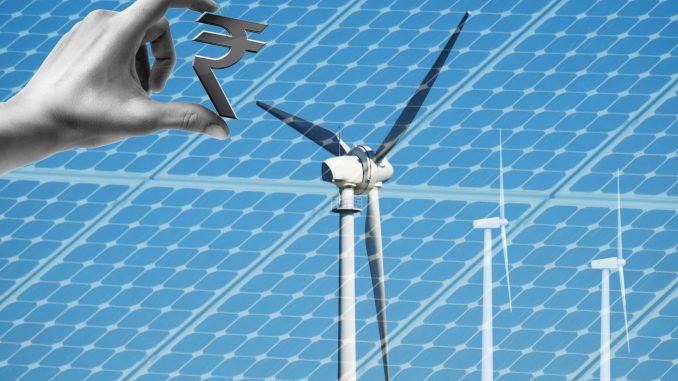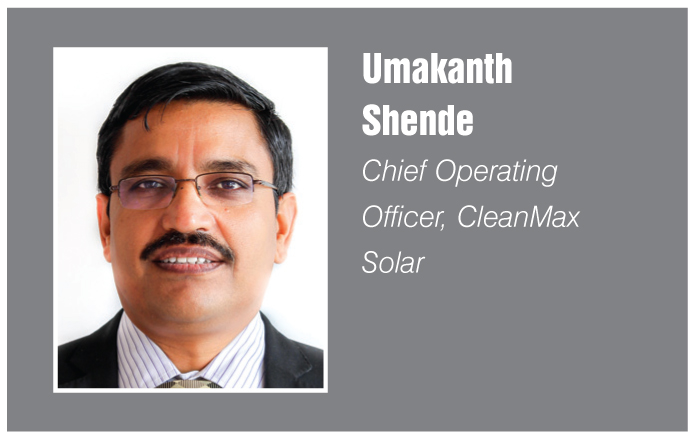
With the solar and wind power segments witnessing extremely low tariffs over the past year and the nodal agencies enforcing strict commissioning timeframes, the industry is concerned if adequate quality control measures are being implemented during project execution. Given that over 100 GW of new renewable energy capacity has to be installed before the 2022 deadline, developers and industry experts discuss possible solutions for maintaining quality standards so as to attain optimum performance over the lifetime of projects…
What are the quality assurance guidelines in various tenders issued by the central and state departments for solar project development? Are these in accordance with international standards?
The tenders issued by the central and state authorities have quality assurance levels that are restricted to the material procured. These may not, however, sufficiently cater to quality standards in terms of field quality control during project execution. International standards like ISO 9001, which seek quality at the design, process and organisational levels, are not currently considered in the country.
All tenders come with detailed guidelines of the minimum quality requirements as per the IEC standards. Uniform quality parameters with strict safety practices comparable to international standards are needed in the country.
CleanMax has internal quality assurance standards, which help the company in offering the best long-term solution to its clients. Firstly, CleanMax has a detailed evaluation process for module suppliers. Next, the audit team assesses the in-process and pre-shipment quality standards that have already been conducted by an international third-party agency. Once the components are deemed suitable after the audit process, they are shipped for deployment at the project sites. The company’s quality checks take into account important parameters like complete integrated manufacturing capability, automated manufacturing process and vendors’ internal quality parameters.
Has aggressive competition amongst developers led to a compromise in quality in projects set up at very low tariffs? How can such a situation be avoided given the 25-year project life cycle?
Anmol Singh Jaggi
The quality of solar projects is governed not only by specifications and procedures but also by time. That is, the time required for implementing quality control measures right from the design stage to material selection and field execution. Currently, the Indian market has a number of organisations that focus on some aspects of quality but miss the others.
Independent monitoring agencies should be encouraged to ensure a 360-degree check on projects from the conception to the commissioning stage. They should also conduct time-lapse checks during the project’s life cycle. Such a move will benefit all stakeholders.
Umakanth Shende
Aggressive bidding is a strategy undertaken by companies depending on their business models. The cost of solar energy has been reducing due to the larger scale of operations, quality of capital available, lower cost of module manufacturing, etc., and these benefits can, in turn, be passed on to consumers by lowering solar tariffs.
Solar developers need to have a long-term vision since most of the power purchase agreements (PPAs) are signed for 20-25 years. It is necessary to ensure that the quality of the solar plant is maintained in order to deliver consistent performance for at least 25 years. The components used in any project have a warranty for five years and hence, the entire performance risk for these initial years is transferred to the manufacturer. However, before getting into any aggressive bids, every solar company should ensure that it can maintain a plant’s performance even after five years. CleanMax Solar can fulfil its long-term commitment on plant performance given to corporate customers because it does not compromise on quality. CleanMax conducts regular quality checks on all components purchased as per the plant’s design. This includes sorting modules according to their current rating in order to minimise the module level mismatch loss and improve output using DC cables of superior technology, which are manufactured by European companies. All components used in our plants, from the foundation to the cables, are of the best available quality that ensure over 25 years of plant performance.
What are the common project areas where solar and wind developers usually falter?
Anmol Singh Jaggi
Quality control, especially during the execution stage, is missed by developers in most cases. The time-frame within which projects hit the ground and are executed is so constrained that carrying out proper checks and rectification is generally missed given the larger aim of achieving plant commissioning within the time limit and avoiding penalties.
Umakanth Shende
In solar specifically, developers should have more inclusive quality and safety standards. All solar companies need to ensure that they have comprehensive employee health and safety policies in place, especially for construction and maintenance workers. Companies need to make sure that these policies are executed and monitored well. In addition, safety concerns during construction, especially for rooftop solar plants, should include environmental and topographical factors.
What further steps can be taken by the government to ensure quality checks for renewable energy projects?
Anmol Singh Jaggi
Currently, PPAs have the time periods defined, between the signing of the agreement and the commissioning of the project. The government should ensure that the PPA signing is followed by a well-defined timeline for project execution, which captures the time required for the implementation of quality assurance project plans. Organisations should be issued commissioning certificates only after the due diligence of the project is carried out and all checks and balances are in place. In addition, government agencies should draw up plans to check the quality of the projects so that their performance is maintained throughout their life cycle.
Umakanth Shende
There are various government agencies that are involved in regular quality checks for approving solar projects. The Department of Electrical Inspectorate and local discom officers typically undertake the inspection process. The government should standardise the approval and inspection processes with national policies and uniform norms for solar plants. Moreover, the Ministry of New and Renewable Energy and discoms should have a common set of guidelines and targets across states while vetting projects. Processes should also be well documented to ensure there are no gaps. Training of the chief electrical inspector, discom employees and nodal agency officers for quality standards is essential.
What are the quality management steps that should be taken by developers/engineering, procurement and construction contractors to ensure optimum project performance over its lifetime?
Anmol Singh Jaggi
The quality of a solar power project can be encompassed in three different aspects: design quality, project execution and risk mitigation. There should not be any compromise on the project costs, the time needed for execution and the safety standards. Proper implementation of quality tools, along with stringent monitoring, could ensure that quality assurance and quality control processes are executed to enhance project performance, reliability, durability, serviceability and aesthetics, while conforming to the set standards.
Anmol Singh Jaggi
“Independent monitoring agencies should be encouraged to ensure a 360-degree check on projects, from conception to commissioning.”
Umakanth Shende
“Uniform quality parameters with strict safety practices comparable to international standards are needed in the country.”


